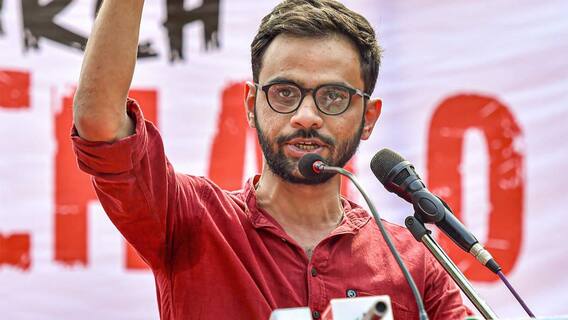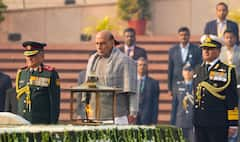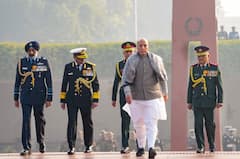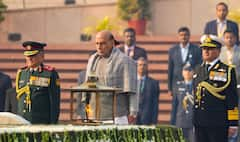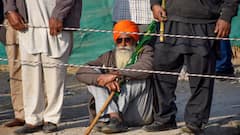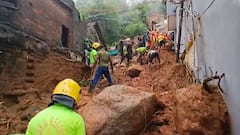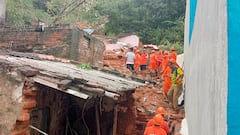Varanasi Court Grants Permission For ASI Survey Of Gyanvapi Mosque Premises, Except Wuzukhana
The petition was filed in May this year by five women who in another plea had earlier sought permission to pray at the 'Shringar Gauri Sthal' inside the complex.

A Varanasi court on Friday allowed the Archaeological Survey of India (ASI) to conduct a survey of the Gyanvapi mosque premises. The court, however, said that the wuzukhana (place for ablution), where the structure resembling a Shivalinga was found, should be kept out of the purview of the survey. The court was hearing a petition filed by the Hindu side seeking direction for a scientific survey of the entire Gyanvapi mosque premises by the Archaeological Survey of India (ASI). The court completed the arguments on the matter on July 14.
Vishnu Shankar Jain, representing the Hindu party in the case, was quoted as saying by news agency ANI, "I have been informed that my application has been approved and the court has directed to conduct an ASI survey of the Gyanvapi mosque complex, excluding the Wazu tank which has been sealed."
Advocate Subhash Nandan Chaturvedi, who also represented the Hindu party in the case, said, "Our application for the ASI survey has been accepted. It's a turning point in the case."
The Gyanvapi mosque committee voiced dissent over the decision and said they will move the Allahabad High Court next week. “The decision of the district court is not acceptable at all. Our arguments are being ignored. We will file a petition in the Allahabad High Court next week,” Maulana Yasin, joint secretary of the mosque committee told ABP News.
The petition was filed in May this year by five women who in another plea had earlier sought permission to worship daily the deities Shringar Gauri, Lord Ganesha, Lord Hanuman and Nandi, whose idols are located on the outer wall of the Gyanvapi mosque.
During the hearing, the Mosque committee opposed the Hindu side's plea seeking ASI survey, and submitted an application to the Varanasi court saying that neither Mughal emperor Aurangzeb was cruel, nor did he demolish any Lord Adi Vishweshwar Temple in Varanasi.
The Muslim side also denied the contention of the Hindu side that the Lord Adi Vishweshwar Temple temple was attacked and destroyed by a Muslim invader and Raja Tondal Mal restored the temple at the same place in 1580 AD.
"Neither Mughal emperor Aurangzeb was cruel, nor did he demolish any Lord Adi Vishweshwar Temple in Varanasi," the Masjid committee said.
The committee also stated in its application that no Shivling was found last year inside the Gyanvapi Mosque premises and the object was is actually a fauvara (fountain).
On May 16, 2022, a court-ordered videographic survey of the Kashi Vishwanath temple-Gyanvapi mosque was completed by a commission appointed by a local court. During the survey proceedings, a structure claimed to be a "Shivalinga" by the Hindu side was found to be inside the mosque premises.
The Muslim side has maintained that the object was part of the water fountain mechanism at the 'wuzukhana' reservoir where devotees carry out ablutions before offering namaz. The Supreme Court, on May 19, told the Archaeological Survey of India (ASI) to not conduct carbon dating of the 'Shivling' till the next hearing on the matter.
Trending News
Top Headlines






